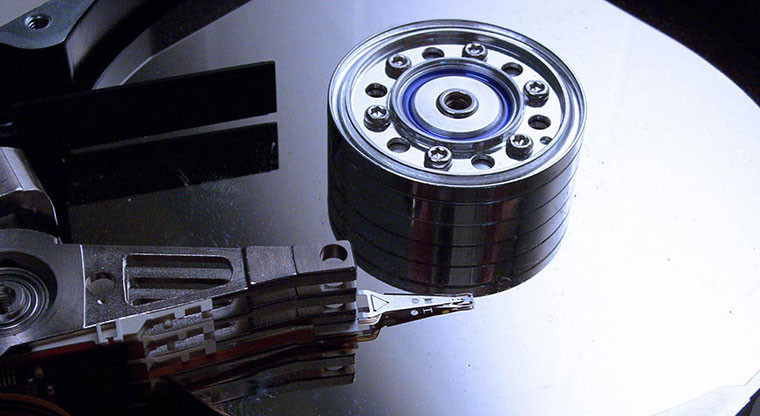
Researchers from IBM and the Swiss Federal Institute of Technology (EPFL) have managed to create a new type of data-storing mechanism, that uses individual atoms as bits. The advances could improve data storage efficiency by orders of magnitude, but the technology is far from being market-ready.
In a paper published in Nature, scientists described how they have managed to demonstrate magnetic stability in a single atom, essentially transforming it into a data storage device. Bits, the smallest units of data, work by having a 1 or 0 state, or an off and on state. These values get stored in our hard drives by small magnetic areas whose polarity represents 1 or 0. Modern hard drives use about one hundred thousand atoms to store one bit of data, but with this research, scientists got that number down to just one bit of data per atom.
Still, this isn’t exactly technology that you’ll see inside your PC or smartphone anytime soon. The researchers had to cool their sample down to 5 Kelvin, use a rare-earth metal, Holmium, and rely on a scanning tunneling microscope to read the data, which they got up to two bits, by using two atoms.
The excitement in the scientific community doesn’t really revolve around data storage in this particular instance. Having stable magnets comprised of just one atom raises much more interesting questions and ideas, such as nanotechnology applications.
But that’s not to say data storage devices aren’t ready for a revolution. One-atom data storage already exists in the form of spintronics or location-pattern storage. On a larger scale, biology is giving us a hand as DNA can be used to store huge amounts of data in a tiny space. So the future is still bright.
Here’s hoping one of these technologies makes it out of the lab quickly so we can finally throw away our 60TB SSDs.
Source: Nature

















6 Comments - Add comment